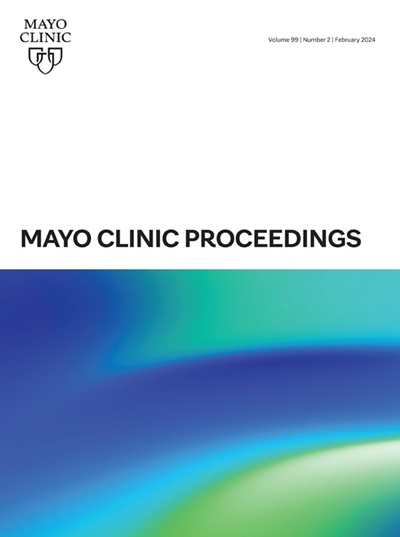The Impact of Open Surgical Team Consistency on Oncologic and Functional Outcomes Following Radical Prostatectomy
IF 6.7
2区 医学
Q1 MEDICINE, GENERAL & INTERNAL
引用次数: 0
Abstract
Objective
To evaluate the impact of surgical team consistency on patient outcomes following radical prostatectomy (RP).
Patients and Methods
Patients undergoing RP at a single institution from 2010 to 2019 were identified. The surgical care team comprised three members: a certified surgical assistant, a certified surgical technologist, and a circulating nurse. Primary team member status for each of the three roles was assigned on a quarterly basis to team members who were present for the highest proportion of a surgeon’s cases. For each procedure, the surgical care team present at the time of the surgical timeout was assessed. Low-consistency teams were defined as those with zero to one primary team members present for a procedure, and high-consistency teams were defined as those with two to three primary team members present. Outcomes included prostate cancer recurrence as well as urinary continence and erectile function (assessed at 1 year after surgery). Cox-proportional hazard regression models evaluated the association of care team consistency with oncologic outcomes, controlling for clinicopathologic variables.
Results
Overall, 4188 of 6216 (67.3%) RPs were performed with high-consistency teams. High-consistency surgical teams were associated with significantly improved 5-year prostate cancer recurrence-free survival (76% vs 72.9%; P=.009). On multivariable analysis, high-consistency teams remained significantly associated with a lower rate of prostate cancer recurrence (HR, 0.93; P=.01). One year postoperatively, high-consistency teams had significantly higher urinary continence rates (0-1 pads/d) (93.9% vs 90.3%; P<.0001) and lower rates of erectile dysfunction (32.9% vs 35.2%; P=.02).
Conclusion
High-consistency surgical teams during RP are associated with significantly lower rates of prostate cancer recurrence and improved functional outcomes.
开放性手术团队一致性对根治性前列腺切除术后肿瘤和功能预后的影响。
目的:评价手术团队一致性对根治性前列腺切除术(RP)患者预后的影响。患者和方法:2010年至2019年在单一机构接受RP的患者被确定。手术护理小组由三名成员组成:一名持证外科助理、一名持证外科技师和一名循环护士。三个角色中的每个角色的主要团队成员身份按季度分配给出席外科医生病例比例最高的团队成员。对于每一个手术,手术暂停时在场的外科护理小组都进行了评估。低一致性团队被定义为那些有0到1个主要团队成员出席的团队,高一致性团队被定义为那些有2到3个主要团队成员出席的团队。结果包括前列腺癌复发、尿失禁和勃起功能(在手术后1年评估)。cox比例风险回归模型评估了护理团队一致性与肿瘤预后的关系,控制了临床病理变量。结果:总体而言,6216个rp中有4188个(67.3%)是由高一致性团队执行的。高一致性手术团队与显著提高的5年前列腺癌无复发生存率相关(76% vs 72.9%;P = .009)。在多变量分析中,高一致性团队与较低的前列腺癌复发率显著相关(HR, 0.93;P = . 01)。术后1年,高一致性组尿失禁率(0-1个尿垫/d)显著高于对照组(93.9% vs 90.3%;结论:RP期间高一致性的手术团队与前列腺癌复发率显著降低和功能预后改善相关。
本文章由计算机程序翻译,如有差异,请以英文原文为准。
求助全文
约1分钟内获得全文
求助全文
来源期刊

Mayo Clinic proceedings
医学-医学:内科
CiteScore
16.80
自引率
1.10%
发文量
383
审稿时长
37 days
期刊介绍:
Mayo Clinic Proceedings is a premier peer-reviewed clinical journal in general medicine. Sponsored by Mayo Clinic, it is one of the most widely read and highly cited scientific publications for physicians. Since 1926, Mayo Clinic Proceedings has continuously published articles that focus on clinical medicine and support the professional and educational needs of its readers. The journal welcomes submissions from authors worldwide and includes Nobel-prize-winning research in its content. With an Impact Factor of 8.9, Mayo Clinic Proceedings is ranked #20 out of 167 journals in the Medicine, General and Internal category, placing it in the top 12% of these journals. It invites manuscripts on clinical and laboratory medicine, health care policy and economics, medical education and ethics, and related topics.
 求助内容:
求助内容: 应助结果提醒方式:
应助结果提醒方式:


